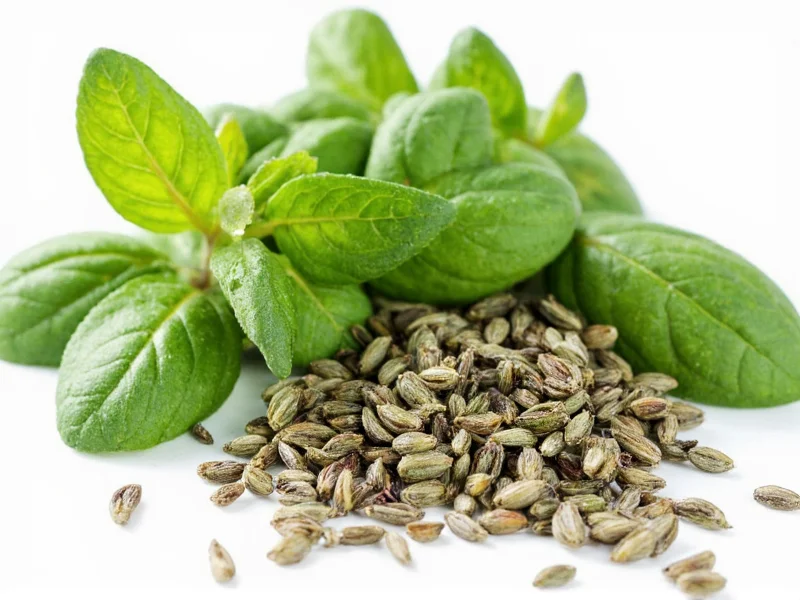Oregano's unique flavor profile makes it one of the most recognizable herbs in global cooking. This perennial herb delivers a complex taste experience that varies depending on its variety, growing conditions, and whether it's used fresh or dried. Understanding oregano's taste characteristics helps home cooks and professional chefs alike maximize its culinary potential.
The Complete Flavor Profile of Oregano
When you taste oregano, you'll first notice its dominant earthy foundation. This earthiness forms the base of its flavor, providing depth to dishes without overwhelming other ingredients. The peppery quality follows immediately, delivering a gentle warmth that's more aromatic than spicy. Unlike black pepper's sharp heat, oregano's peppery note enhances rather than dominates.
Beneath these primary characteristics lie subtle bitter notes that add complexity. This bitterness isn't unpleasant but rather balances the herb's overall profile, preventing it from tasting one-dimensional. Many people detect a faint minty undertone, particularly in Greek oregano varieties, which contributes to its refreshing quality.
Factors That Influence Oregano's Taste
Several elements affect how oregano tastes in your dishes:
- Origin and variety: Mediterranean oregano (Origanum vulgare subsp. hirtum) has a stronger, more pungent flavor than Mexican oregano (Lippia graveolens), which leans toward citrus notes
- Fresh versus dried: Drying concentrates oregano's flavor, making dried oregano significantly more potent than fresh
- Growing conditions: Sun exposure, soil composition, and harvesting time all impact flavor intensity
- Preparation method: Crushing releases more essential oils, intensifying the taste
| Factor | Effect on Taste |
|---|---|
| Origin (Mediterranean) | Stronger, more pungent, earthier flavor |
| Origin (Mexican) | More citrus-forward, slightly sweeter |
| Fresh oregano | Milder, brighter, with subtle grassy notes |
| Dried oregano | More concentrated, robust, with intensified earthiness |
How Oregano Compares to Similar Herbs
Understanding oregano's taste requires comparison with related herbs. While often confused, oregano and marjoram are distinct: marjoram offers a sweeter, milder flavor with delicate floral notes, whereas oregano delivers a bolder, more assertive taste. Thyme shares some earthiness but lacks oregano's peppery kick and has more pronounced lemon undertones.
When substituting herbs, remember that oregano's robust flavor means you typically need less than you would of milder herbs like basil or parsley. Its intensity makes it particularly well-suited for dishes that benefit from a strong herbal presence, such as tomato-based sauces, grilled meats, and hearty vegetable preparations.
Culinary Applications Based on Oregano's Flavor
Oregano's distinctive taste profile determines its best culinary uses. The herb shines in dishes where its earthy, peppery qualities can complement rather than compete with other ingredients. Traditional Mediterranean recipes leverage oregano's flavor perfectly:
- Pizza and pasta sauces: Oregano's earthiness balances tomato acidity while its peppery notes enhance savory elements
- Grilled meats and vegetables: The herb's robust flavor stands up to high-heat cooking without fading
- Olive oil infusions: Oregano's essential oils dissolve beautifully in fat, creating flavorful bases for dressings and marinades
- Bean and lentil dishes: Its earthiness complements legumes' natural flavors
For optimal flavor extraction, add dried oregano early in the cooking process to allow its essential oils to infuse the dish. Fresh oregano works best when added toward the end of cooking to preserve its more delicate flavor compounds.
Maximizing Oregano's Flavor in Your Cooking
To get the most from oregano's distinctive taste, consider these practical tips:
- Toast dried oregano briefly in a dry pan before use to awaken its essential oils and deepen its flavor
- Pair with complementary flavors like garlic, lemon, tomatoes, and olive oil that enhance rather than compete with oregano's profile
- Use less than you think - oregano's strong flavor can easily dominate a dish when overused
- Store properly in an airtight container away from light to preserve its volatile flavor compounds
Understanding how oregano tastes allows you to use it more effectively in your cooking. Whether you're making a classic Italian tomato sauce, a Greek salad dressing, or a simple roasted vegetable dish, knowing oregano's flavor characteristics helps you balance and enhance your recipes with confidence.
Frequently Asked Questions About Oregano Taste
Why does oregano taste so strong compared to other herbs?
Oregano contains high concentrations of essential oils like carvacrol and thymol, which create its distinctive strong, earthy flavor. These compounds are more concentrated in oregano than in many other common culinary herbs, giving it a more robust taste profile that stands up well to cooking.
Does fresh oregano taste different from dried oregano?
Yes, fresh and dried oregano have noticeably different flavor profiles. Fresh oregano offers a brighter, more delicate taste with subtle grassy notes, while dried oregano has a more concentrated, robust flavor with intensified earthiness. Dried oregano is typically 2-3 times stronger than fresh, so you'll need to adjust quantities when substituting one for the other.
Why does oregano sometimes taste bitter?
Oregano naturally contains compounds that register as slightly bitter on the palate. This bitterness is part of what gives oregano its complex flavor profile. When used in appropriate quantities, this bitterness balances the herb's earthy and peppery notes. However, using too much oregano, especially dried, can make dishes taste unpleasantly bitter.
How can I reduce oregano's strong flavor if I've added too much?
If you've added too much oregano to a dish, you can balance its strong flavor by adding acid (like lemon juice or vinegar), sweetness (a small amount of honey or sugar), or additional ingredients to dilute the concentration. For tomato-based sauces, adding a pinch of baking soda can help neutralize some of the bitterness while preserving the overall flavor balance.











 浙公网安备
33010002000092号
浙公网安备
33010002000092号 浙B2-20120091-4
浙B2-20120091-4